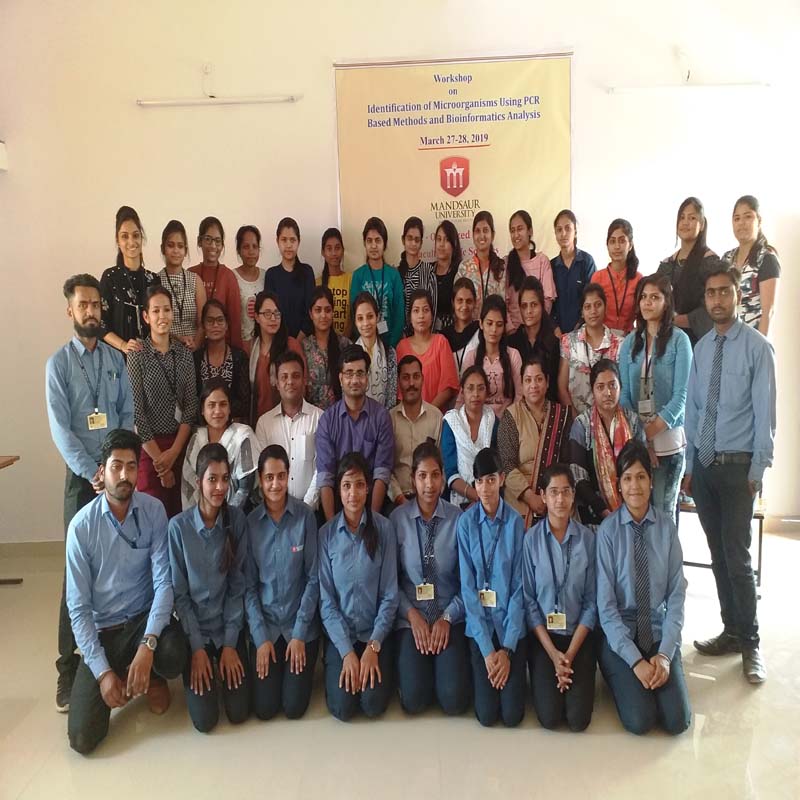
Workshop on Identification of microorganisms using PCR based methods and bioinformatic analysis
Faculty of Life Sciences has been successfully conducted the two days’ workshop on identification of microorganisms using PCR based methods and bioinformatic analysis in this week. A total of fifty B.Sc. final year students participated in this workshop, which includes the students from the degree colleges of Mandsaur Ratlam and Neemuch. At the inauguration time of the workshop, the presence of Col. Anand Kumar, Dean of Administration of MU and Mr. Ashish Agarwal, Academic Councilor of MU make the event auspicious. Particularly, at the beginning of the workshop, the motivational speech delivered by Col. Anand and his interactions to individual outside students really make a positive impression about the university and the department in the student minds and was moreover helpful to decide their future career. After that, Dr. Shekhar Jain, HOD, Life Sciences, familiarized participants about the facilities and strength of the department. He also discussed about the future prospects of biotechnology and microbiology. In the post-tea session, our invited guest speaker, Dr. Anurag Sahu, Scientist at International Center for Genetic Engineering and Biotechnology (ICGEB), New Delhi delivered an informative lecture on plant viruses in general and recent development of molecular techniques for the plant viral disease detection and prevention.
Most importantly, in this two days workshop, the students experienced the hands-on training on basic molecular biology techniques used in biotechnology and microbiology research such as Genomic DNA extraction from Bacteria, Gene amplification using PCR, Gel electrophoresis techniques, handling of the software and online servers used for genomic research. Outside participants get exposure about the facilities and lab environment available in the department. During the hands-on training, active involvement of the faculty members of the Faculty of Life sciences was greatly appreciated. At the end of the workshop, we appreciated the engagement of all the participants by providing them with the participation certificates.
Hopefully, this workshop become fruitful for the participant to learn various molecular methods and techniques involved in the identification of microorganisms. Participants from nearby government colleges get exposure about the facilities available in the department. This type of activities gives a new energy to students.